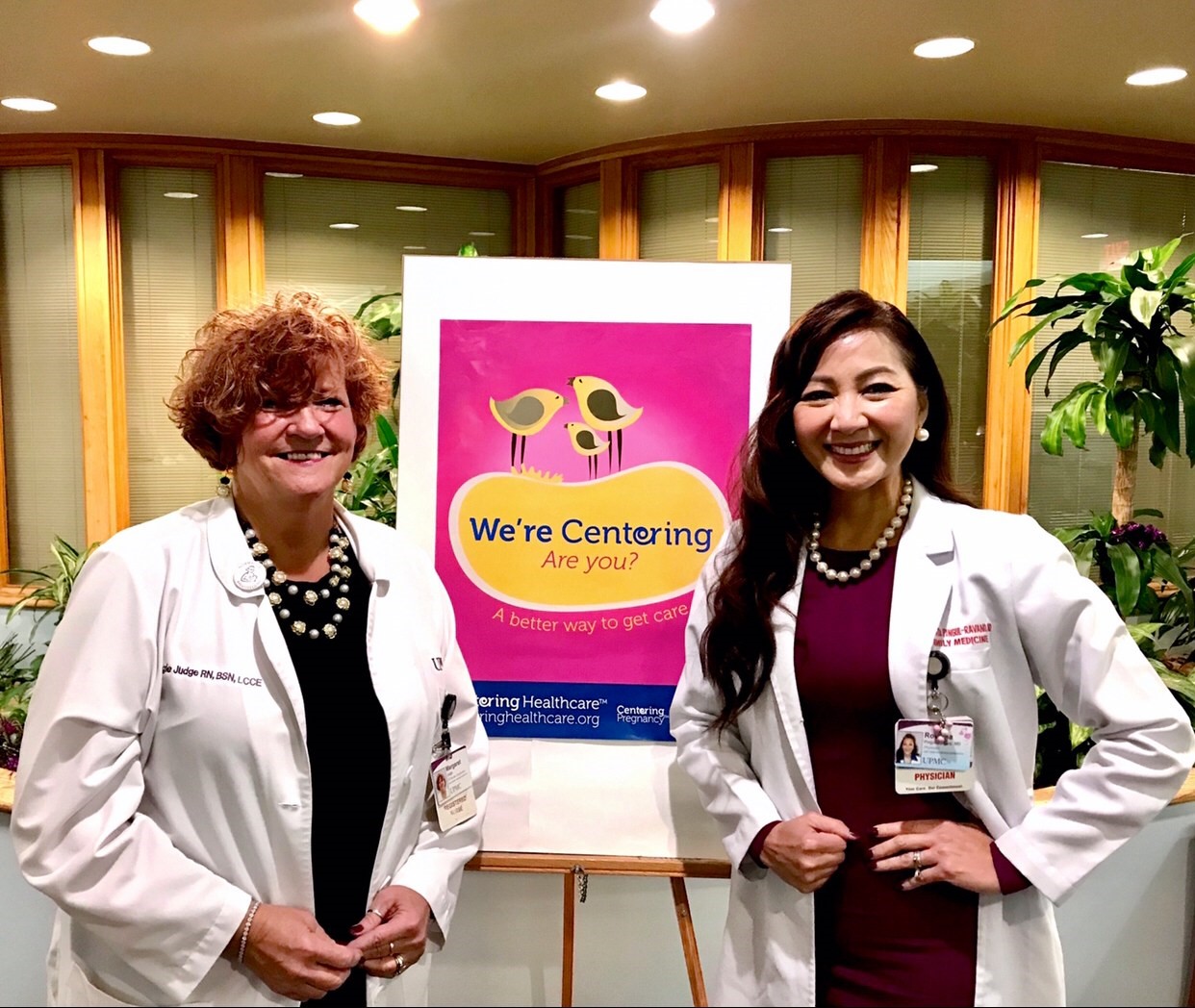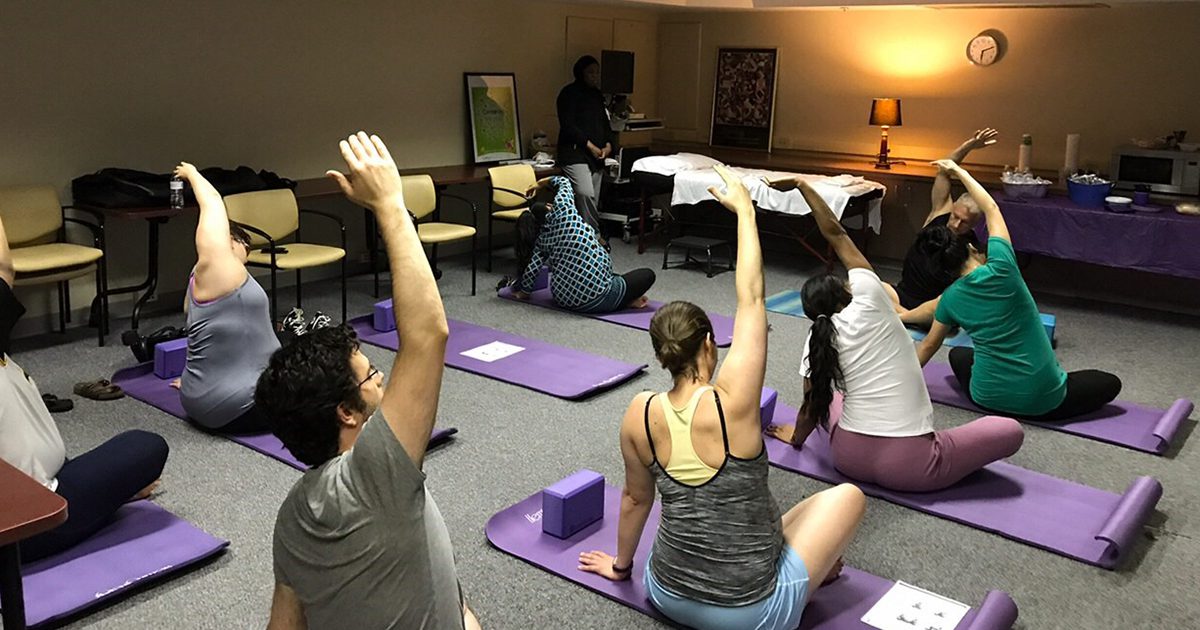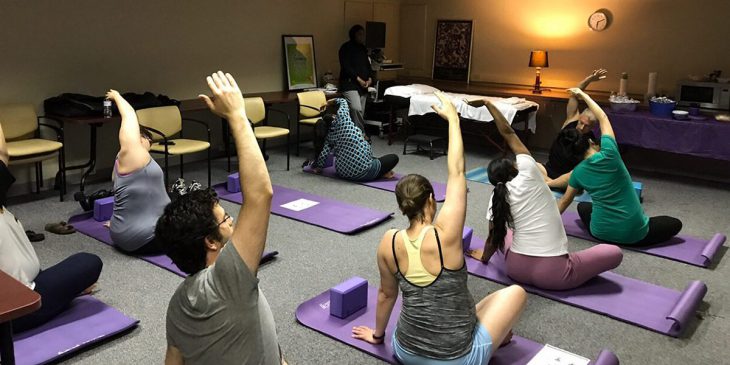Centering pregnancy is an innovative model of prenatal care that is a shift from the traditional one-on-one, physician-patient prenatal visit to a pregnancy group visit setting. Dr. Rowena D. Pingul-Ravano, director of the Centering Pregnancy Program at UPMC Shadyside Family Health Center, and Maggie Judge, nurse coordinator and lactation consultant, share how the program is providing a different approach to caring for women and preventing preterm birth.

Margaret Judge and Dr. Rowena Pingul-Ravano
Q: What is the Centering Pregnancy Program?
Judge: What makes centering unique is that it is group prenatal care, it’s a different model of care from the individual visits. Rather than the traditional one-on-one visits with a doctor, a patient or new mom will have a 90-minute to two-hour session in a group of women and pregnant women alike.
Pingul-Ravano: If there is one phrase that I can use for our Centering Pregnancy Program that connects most to UPMC’s mission, it is a model of patient-centered care. We focus on the patient, and they are involved in their own care. Centering is a stand-alone health care model that is truly evidence based, cost effective, and improves outcomes. It increases patient education, knowledge, satisfaction, and breast-feeding rates, while it also decreases depression rates and preterm birth. What we really want to introduce to our patients and to the community at large is a novel model of care centered — not just on a patient’s relationship with their physicians, but also with other pregnant women in the community.
Q: How is centering connected to preventing preterm labor in our community?
Pingul-Ravano: Preterm birth is preventable. Studies have shown that mothers who deliver preterm babies are at increased risk of maternal mental health conditions, especially with postpartum depression and post-traumatic stress disorder (PTSD), affecting infant development and the mother-baby bond. Centering pregnancy is shown to reduce the risk of premature birth.
Additionally, addressing racial disparity in maternity care and preventing preterm birth amongst Black women are two of the goals I envision for our program. In our Centering Pregnancy Program group visits, 52% of our moms are Black and 27% of our moms are White. Our UPMC Shadyside Family Health Center non-induced preterm birth rate among Black infants whose mothers participated in centering was 0%. If the Centering Pregnancy Program can prevent one preterm birth, then that is already making a difference in our community.

Photo of Centering Pregnancy program patients participating in a yoga session
Q: How was the Centering Pregnancy Program at UPMC Shadyside Health Center started?
Pingul-Ravano: When I came to UPMC Shadyside Family Health Center in 2013, I met Maggie, who was equally passionate about caring for our pregnant mothers. Together, we developed a plan to bring centering to the Health Center. By 2014, we happily received grant funding from Shadyside Hospital Foundation.
UPMC has always been our biggest backbone, biggest support, and without the grant from the Shadyside Hospital Foundation, we would not be here today. The fact that the Department of Family Medicine, including our Shadyside Family Medicine Residency Program, supports our Centering Pregnancy Program provides us the opportunity to share it with our community.
Judge: They’re letting us do this as a part of our Health Center, providing the space and supporting us. They see that what we are doing benefits patients. Additionally, we just partnered with UPMC Magee-Womens Hospital to offer centering as part of their care options at the midwife center.
Q: What are your future goals for the Centering Pregnancy Program?
Judge: We are working toward two primary goals. First, starting a Centering Breastfeeding Group and second, to bring centering parenting to the Health Center.
Pingul-Ravano: Additionally, we have received support from the Shadyside Hospital Foundation to work toward patient-centered maternity care during the fourth trimester. Mothers should see their providers within two to three weeks after delivery, rather than the traditional six-week postpartum visit. In accordance with the American College of Obstetricians and Gynecologists guidelines, our Centering Pregnancy Program implemented our own one-week follow-up calls to screen for warning signs and early two-week postpartum follow-ups. We have had a 100% follow-up success rate in our pilot study.
By bridging the maternity care disparity gap, creating innovative changes and preventing preterm birth, we can prevent maternal complications and mortality post-partum, one woman at a time.
To find out more about the Centering Pregnancy Program at UPMC Shadyside Family Health Center visit www.centeringpregnancyprogram.com








